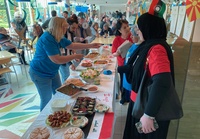
Blog


Every four years, organisations distributing Dormant Assets in England are independently reviewed. In response to the 2021 review, Access – The Foundation for Social Investment – has taken steps to enhance transparency around its delivery costs and funding flows. Find out more.







